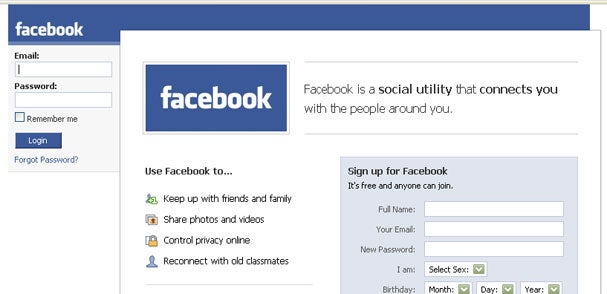Businessman wins £22,000 over Facebook libel

A businessman whose personal details were "laid bare" in fake libellous entries on the Facebook social networking website was awarded £22,000 damages today against a former friend who created the profile.
Mathew Firsht, managing director of Applause Store Productions Ltd, sued an old schoolfriend, freelance cameraman Grant Raphael, for libel and misuse of private information.
A judge at the High Court in London ruled that Mr Raphael's defence to the action - that the entry was created by mischievous party gate-crashers at his flat - was "built on lies".
Deputy Judge Richard Parkes QC awarded Mr Firsht £15,000 for libel and £2,000 for breach of privacy.
Mr Firsht's company, which finds audiences for TV and radio shows and provides warm-up services for live audiences, including the evictions on Big Brother, was awarded £5,000 for libel.
Mr Firsht accused Mr Raphael of creating a false personal profile, and a company profile called "Has Mathew Firsht lied to you?", from a computer at the flat where Mr Raphael was living in Hampstead, north west London, in June last year.
Mr Raphael claimed that "strangers" who attended an impromptu party at the address that day sneaked off to a spare bedroom and created the profiles on his PC.
The profiles were on the site for 16 days until Mr Firsht's brother spotted them and they were taken down by Facebook.
The judge heard that the private information concerned Mr Firsht's whereabouts, activities, birthday and relationship status and falsely indicated his sexual orientation and political views.
It said that he was "Looking for: whatever I can get" in terms of relationships and was signed up to groups including Gay in the Wood...Borehamwood, and Gay Jews in London.
Mr Firsht complained about allegations that he owed substantial sums of money which he had repeatedly avoided paying by lying, and that he and his company were not to be trusted in the financial conduct of their business and represented a serious credit risk.
He accused Mr Raphael of bearing a grudge against him since they fell out in 2000 and of creating a false Facebook entry with the aim of causing him anxiety and embarrassment.
Recounting the "unfortunate dispute between two former friends", the judge said Mr Firsht's company provided audiences for popular shows such as Big Brother, The X Factor and Top Gear.
He was personally involved in overseeing the audience operation, and his credibility and reputation were very important to him.
Mr Raphael, a freelance lighting cameraman, also spent much of his time working in television.
Mr Firsht, now in his late 30s, became good friends with Mr Raphael in Brighton, where they went to school together.
They fell out around six years ago over a business dispute. Mr Firsht, who said he did not hold grudges, forgot about the episode and moved on to become very successful.
"He is plainly a businessman of single-minded drive and dedication, and he did not strike me as being the kind of man to waste valuable time on ancient disputes," the judge said.
By contrast, Mr Raphael's company went into voluntary liquidation and, by the time the present dispute arose, "Mr Firsht was prospering and highly successful, and Mr Raphael was not".
The judge described as "utterly far-fetched" Mr Raphael's claim that a complete and random stranger visiting his flat for the first time used his computer for more than an hour, without being observed, to create a false and hurtful profile containing information that few people apart from Mr Raphael could have known.
Mr Raphael, as a witness in court, was "glib and loquacious, always prepared, it seemed to me, to talk his way out of a difficulty, with no apparent insight into the implausibility of some of his answers".
The judge said Mr Firsht, a very private person, was shocked and extremely upset by the gross invasion of his privacy and the fact that personal details, including false details about his sexuality, had been "laid bare for all to see".
The damage he suffered was made worse by his being compelled to endure an expensive and time-consuming court process to achieve vindication in the face of Mr Raphael's lies.
He would have accepted an apology if Mr Raphael had offered one at an early stage, thus avoiding the distress and expense of litigation.
Join our commenting forum
Join thought-provoking conversations, follow other Independent readers and see their replies
Comments
Bookmark popover
Removed from bookmarks